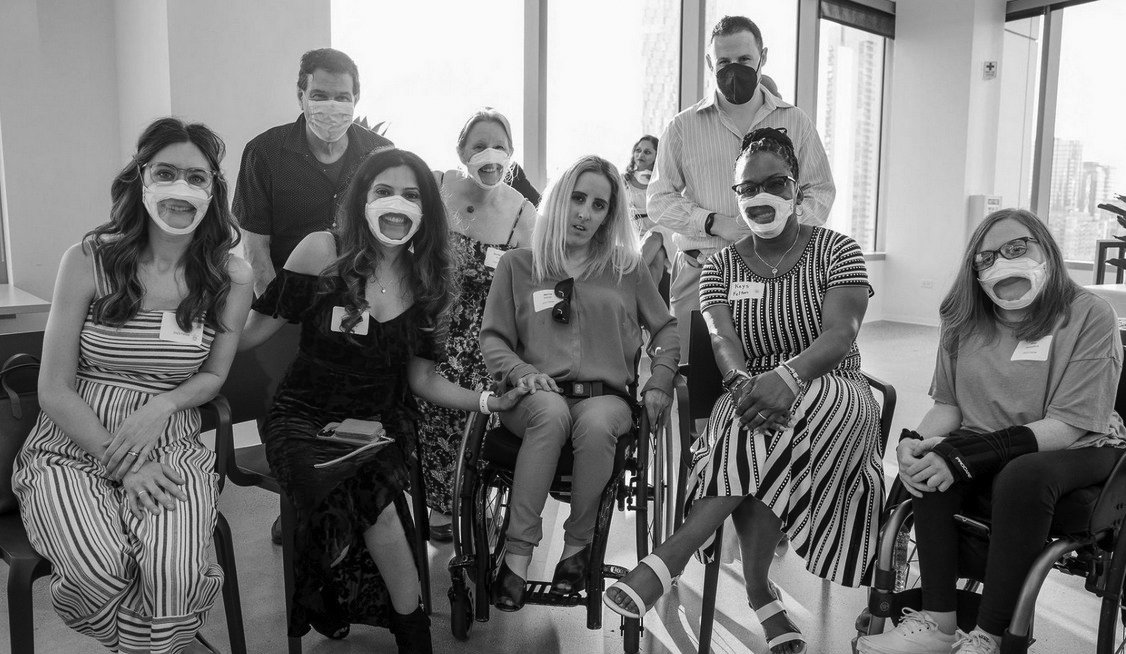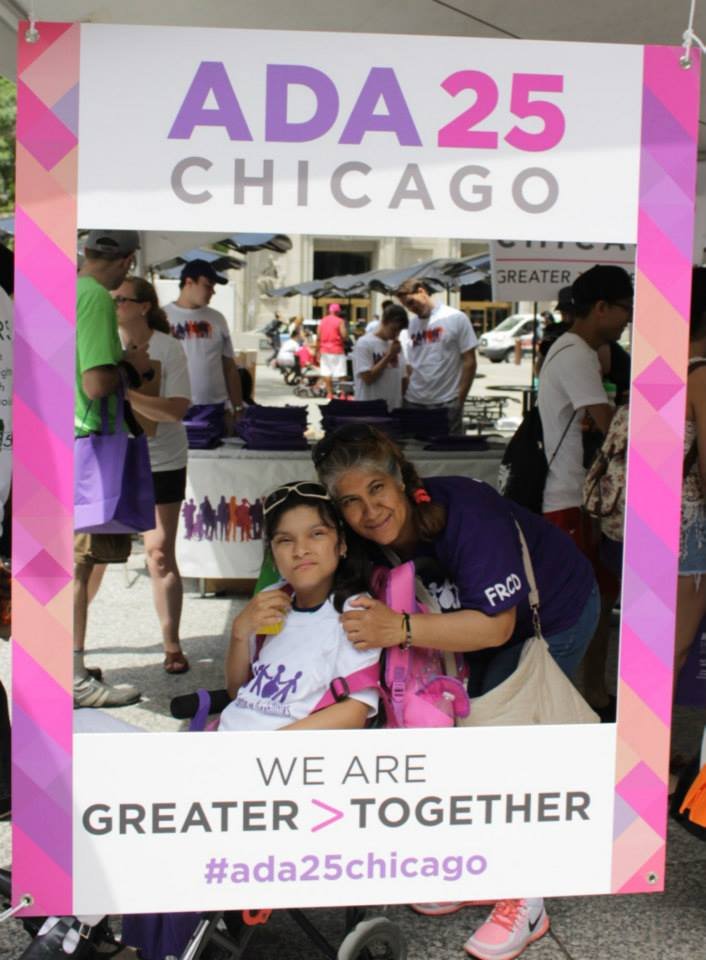
Case Study
Disability Lead
Fundraising & Communications
Photo courtesy of Disability Lead
When it comes to many diversity, equity, and inclusion initiatives, disability justice is often left out of the equation. But at Disability Lead, a Chicago-based nonprofit, disability justice isn’t just a part of their mission statement—it’s integrated into everything they do.
“Being a person with disability in the professional space can be incredibly lonely and isolating, so having a focus on disabled leaders and disabled professionals is hugely unique and also creates a really supportive place,” says Emily Blum, executive director of Disability Lead.
Founded in 2015 as a leadership institute during the 25th anniversary of the Americans with Disabilities Act (ADA), Disability Lead is a network of people with disabilities committed to creating better, equitable, and more inclusive communities.
Photo courtesy of Disability Lead
“When the planning for the citywide ADA celebration was going on with hundreds of civic partners, there was this realization that we weren’t talking to people with disabilities in leadership roles of those organizations,” explains Renna. “And our founders recognized our city needed to build a pipeline of leaders with disabilities who will hold positions of power and influence. Disability Lead was created to build that bench.”
By and for people with disabilities, Disability Lead is the first program of its kind in the country. The organization works with the understanding that we will only be an equitable and inclusive society when we achieve true disability justice.
“Our vision is that people with disabilities will lead with power and influence for full participation and equal opportunity. And so we see ourselves and call ourselves positive disruptors,” shares Anne Renna, development manager for Disability Lead. “Our mission is to increase civic engagement in diverse leadership by developing and building a network of leaders with disabilities.”
Not only has Disability Lead addressed that need, but the organization also evolved to build a network of leaders with disabilities. Today, their network is more than 200 members strong. They’re also piloting an expansion into southwestern Pennsylvania with the help of FISA Foundation and other stakeholders.
“I realized that having outside support and focus on grant writing would be really helpful so this critical funding source didn’t get lost in the everyday shuffle,” says Renna. “And it’s been really great because Women Unite! has connected us to opportunities I’m not sure we would’ve found on our own. They’ve also helped us craft some new and effective language for explaining our work and our programs.”
“Many of the organizations that are doing disability work are social service organizations, but we’re not a social service organization,” explains Blum. “Women Unite! understands that we have a unique position in the marketplace, that our programs are aimed at creating systemic change through our Members, and helps us communicate that unique approach effectively for grant support.”
According to Disability Lead’s member survey, approximately 84% of members have made a professional advancement since joining the network. Next year, Disability Lead is projected to have its largest revenue budget to date. The organization is also planning a national summit on disabled leadership to support companies in building inclusive workplaces.
“Our big idea with the summit is supporting leaders with disabilities who are active in company affinity groups and deliver learnings and other valuable content to them, as well as a national network that can really support their personal development goals,” says Blum. “It’s been a lot of fun dreaming about what it actually looks like to support disabled leaders on a national basis.”
Photo courtesy of Disability Lead
Disability Lead aims to create transformative change through three primary programs:
Connections: “This is why we exist,” says Renna. “It involves connecting our members to opportunities for advancement or to be engaged civically, whether it’s at a city, state, or national commission, serving on a nonprofit board, a promotion at work, or a public speaking opportunity. We do this because we know that when our leaders have the opportunity for a connection or advancement, they help to influence the field of leadership. They bring a unique perspective.”
Institute: Each year, Disability Leads selects and convenes an intimate cohort of 16 to 20 emerging leaders with disabilities to participate in a yearlong fellowship program. The immersive experience provides the opportunity for Fellows to explore their leadership and disability identities, engage in storytelling exercises, learn about the disability rights movement and how to identify and prepare for civic engagement opportunities.
Network: After completing the yearlong Institute, graduates join the Disability Lead network of more than 200 “positive disruptors.” “These could be leaders with visible, invisible, or acquired disabilities and what the network does is provide space and opportunity for these members to gather, participate in panels with local and national disability leaders, and expand their personal and professional networks,” says Renna. “We pride ourselves in building an intersectional membership.”
“I realized that having outside support and focus on grant writing would be really helpful so this critical funding source didn’t get lost in the everyday shuffle . . . And it’s been really great because Women Unite! has connected us to opportunities I’m not sure we would’ve found on our own”
—Anne Renna, Development Manager, Disability Lead



